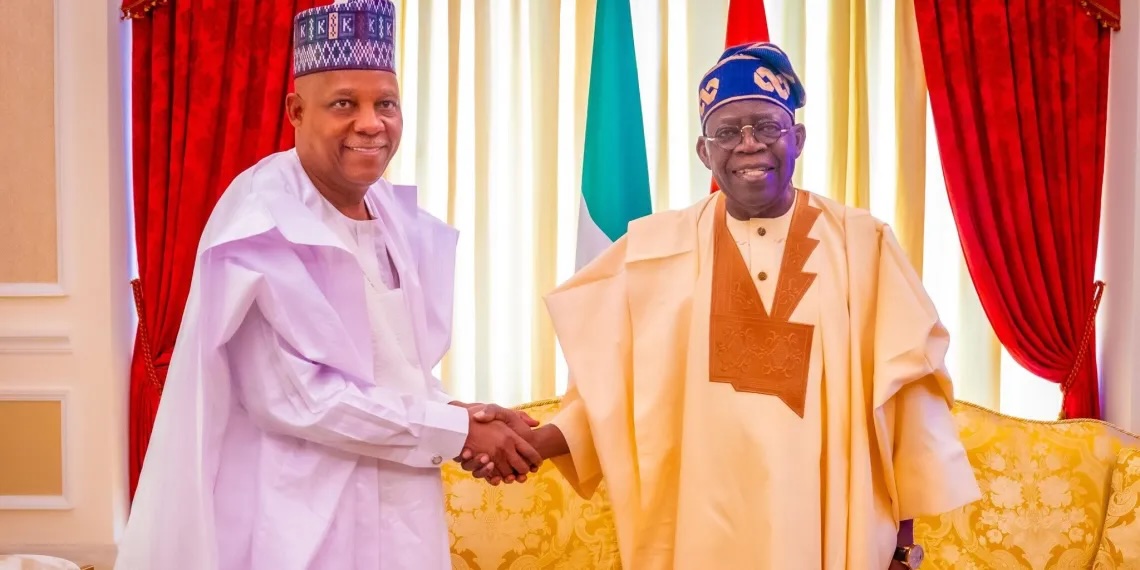 Federalism, in progressive democracies is a political model in which power is distributed amongst various tiers of administration at national or subnational levels. In Exploring Federalism (1987), Elazar posited: “federalism has to do with the constitutional diffusion of power so that the constituting elements in a federal arrangement share in the processes of common policy making and administration by right, while the activities of common government are conducted in such a way as to maintain their respective integrities.”
Federalism, in progressive democracies is a political model in which power is distributed amongst various tiers of administration at national or subnational levels. In Exploring Federalism (1987), Elazar posited: “federalism has to do with the constitutional diffusion of power so that the constituting elements in a federal arrangement share in the processes of common policy making and administration by right, while the activities of common government are conducted in such a way as to maintain their respective integrities.”
Philosophically, federalism rests on the logic that democratic governance in enlightened nations should be closer to the people; yielding three important inferences. One, because democracy is the government of the people, by the people, and for the people; therefore, they have a right, and the duty to determine how their government is run.
Second, democracy is entirely meaningless if power is concentrated within aminority. Finally, unitarism, the political model where absolute powers or near-absolute powers are monopolised by a central authority or national government, is the antithesis of democracy.
Logically, unitarism, inherently establishes a democratic chasm between ordinary people– who ought to be administering their own affairs at sub-national level–and unitarists, who control all or almost all powers, through over centralisation. Nigeria’s peculiar demographic heterogeneity, established in its multi-culturalism, multi-ethnicism, multilingualism, and multi-religionism, comprising over 200 tribes, and more than 200 million people, formed the basis of constitutional claims to federalism several decades ago to now.
Before Nigeria’s October 1, 1960 Independence, its Constitutions, notably the 1946 Richards Constitution, named after then British Governor-General Sir Arthur Richards (1885 -1978); the McPherson Constitution (1951), christened after Governor-General John Stuart Macpherson (1898-1971); and the Lyttleton Constitution (1954), named after Oliver Lyttleton, 1st Viscount Chandos (1893-1972); all comprehensively acknowledged the pivotal import of federalism given the nation’s disparate complexion.
After Independence, the 1963 Republican Constitution, the 1979 Constitution and the current 1999 Constitution (as amended), all emphasised federalism. The recitals to all three constitutional enactments allude to the Federal Republic of Nigeria and the people of the said Republic. Section 2 of the 1963 Constitution, since repealed, but still relevant, asserts: “Nigeria shall be a Federation comprising of Regions…and shall be a Republic by the name of the Federal Republic of Nigeria.”
Section 86 thereof further established that a Regional Government shall not “endanger the continuance of the Federal Government of Nigeria”; whilst Chapter VIII, Part I, therein establishes a Federal Supreme Court inter alia.
Supremacy of the Constitution is a recurring theme within the subsisting 1999 Constitution and the repealed 1979 Constitution pursuant to section (1) 1 of the both enactments: “this Constitution is supreme and its provisions shall have binding force on all persons and authorities throughout the Federal Republic of Nigeria (FRN).”
Section 4(1) of the 1979 Constitution established that legislative powers of the FRN shall be vested in the National Assembly for the Federation, whilst section 5 (1)(b), therein, effectively replicates section 86 of the 1963 Republican Constitution in that State executive powers shall not be exercised to endanger the continuance of the Federal Government of Nigeria.
Further deconstructing the constitutional enactments, section 3 (1) and 3 (6) of 1999 Constitution (supra), defines the constituent parts of the Federal Republic of Nigeria as 36 States and the Federal Capital Territory (Abuja), and 774 local government areas. Whilst section 74 (1) of the enactment stipulates that Nigeria be a State, based on the principles of democracy and social justice. Clearly therefore, ample constitutional authorities conceptually reinforce federalism.
The fundamental question however, is whether federalism is consistently, demonstrably, and equitably, executed in the country’s democratic governance and statecraft, notwithstanding the pragmatic imperative for flexible interoperability between various tiers for government?
The answer is complex for the basic reason that unitarists contend that Nigeria’s constitutional architecture which proclaims federalism in several respects is fit-for-purpose; whilst real federalist-devolutionists, advocates of decentralisation of power from the centre to the subnational democratic substratum, that is states, local governments, community development areas et al, vehemently argue that Nigeria’s “federal” government exercises a suffocating hold on power!
That suffocating grip, with historical antecedents in the Unification Decree: Number 34 of 1966, promulgated under Nigeria’s first military dictatorship (January 17, 1966– July 29, 1966) of General Aguiyi Ironsi (a.k.a.“Ironside”) (1924-1966); abrogated the federal system of government bequeathed to Nigeria by the British, whilst crystallising unitary powers in the military’s command-and -control regimen.
The unintended political consequence however, has been seepage of unitarism into Nigeria’s constitutional frameworks given almost threedecades of military rule!
Advancing that thesis, the 1999 Nigerian Constitution (as amended) (the “Constitution”), lacks robust democratic credence because it does not sufficiently devolve real power, authority, and responsibilities to states and local governments; combined with the fact that it originated from late General Sani Abacha’s military dictatorship (1993-1998), which ruled by fiat!
Accordingly, assertions as to genuine Nigerian “federalism” are, at best, pyrrhic, and at worst, fallacious. Synthesising both positions, segues to the assertion that there cannot be a hermetic seal between a unitarist and a federalist democratic model if the overriding political objectives are the wellbeing, protection, and advancement of the people, nation, and national interests. Ergo, interoperability between various tiers of government becomes a practical necessity, interspersed with political negotiation and legal skirmishes.
Even so, the Constitution and Nigeria’s extant socio-political dynamics demand scrutiny for a better grasp of the efficacy of the nation’s federalist credentials.
Pro-unitarist argumentation asserts, inter alia, that: there are Federal Government colleges in all the Nigeria’s 36 states and federal institutions traversing the country’s six geopolitical zones; section 147 (3) of the Constitution expressly provides that “the President shall appoint at least one Minister from each State who shall be an indigene of such State”; and that federal entities like the Economic and Financial Crimes Commission, established pursuant to the EFCC (Establishment) Act 2004, exist to tackle, prosecute and eliminate all manner of financial crimes nationally.
Persuasive counter balancing contentions, are robustly advanced by federalist-devolutionists. First, is the argument that Nigeria’s current security challenges including banditry, kidnapping, ethno-religious terrorism by Ansaru, Boko Haram, ISWAP etc, which has internally displaced over a million persons intra-country and claimed over 22,000 lives through 2011/2023; justifies a complete recasting of security strategy and the creation of state police.
Second, is the legal impediment, de facto unitary powers for the nation/central government, established in statute via Schedule II, Part I, Exclusive List of the Constitution. The provisions establish matters which are absolutely within the legislative capacity of the national/central government. Again, this is a nuanced example of seepage of unitary powers with original antecedents Decree 34 of 1966 (supra).
Example; item 8, of the List specifies “census” as an exclusive item. Now then, it is entirely understandable that a system of registering births and deaths, is held centrally. However, from a strategic planning perspective, why is a state or subnational unit within Nigeria’s federal architecture, legislatively incapacitated from undertaking a periodic local or statewide census to determine the number of residents, pensioners, and students, for a more data-driven-scientific needs-assessment thereby accurately targeting resource allocation?
Third, what in the 21st Century, is the justification for denying states and sub-national federating units the ability to fix important arterial (“Federal trunk”) road networks? Well, that legal stranglehold is explicated in Item 11 of the Exclusive List which impedes road maintenance by state governments! It therefore means that in an emergency, food, water, medical supplies cannot reach people in desperate need purely because of this constitutional impediment. It defies logic!
Taxation is an important feature too and this is addressed in Item 11 of the Exclusive List relative to incomes, profits and capital gains. However, the logic of innovation, imagination, nuanced thinking, and creative problem-solving informs the current tax reform proposal scurrently proceeding through the National Assembly (Parliament) under the agency of the Nigeria Tax Administration Bill 2024.
The Bill seeks to simplify tax administration, by eliminating multiple taxation, obsolescence, reduce tax burdens on low-income earners (people earning under N800,000) and small businesses, thereby catalysing economic growth. Plus, the proposals seek to give practical meaning to real federalism via seminal VAT distribution proposals thus: 10 per cent allocations for the Federal Government; 55 per cent allocations for states and 35 per cent allocations for local government applying a 20:20:60 methodology where 20 per cent is applied equally to all states; 20 per cent is applied on the criterion of demographics, and 60 per cent is applied on the basis of derivation.
The reasonable inference being the responsibility of each state to maximise its own revenue generating capacity, without routinely, and unimaginatively, seeking, like Oliver Twist, federal allocation begging-bowls from national government.
Ending, the case for broader, deeper and effective federalism in Nigeria is incontrovertible. The country’s Constitution and legal frameworks were always intended to be dynamic, not static, and must be adaptable to the enlightened socio-economic and progressive development aspirations of the Nigerian people.
Therefore, enhanced local government autonomy; devolved policing powers; decentralised public universities to help stimulate innovation, groundbreaking research, sustainable philanthropic endowments; devolving gaming and lottery regulation; imaginative utilisation of peaceful nuclear technological development to address dysfunctional power supply nationwide; and necessary tax reforms are essential, albeit not sufficient, to reshape and embed real federalism in the country.
Nevertheless, a degree of strategic coordination, interoperability and policy execution, would be required by the national government and sub national federating units, with the baseline remaining effective leadership.
Ojumu is the Principal Partner at Balliol Myers LP, a firm of legal practitioners and strategy consultants in Lagos, Nigeria, and the author of The Dynamic Intersections of Economics, Foreign Relations, Jurisprudence and National Development.






